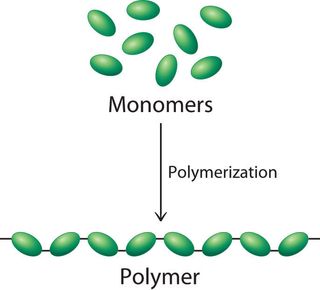Innovative Polymers: Reinventing Modern Manufacturing
Innovative Polymers: Reinventing Modern Manufacturing
Blog Article
Harnessing the Power of Polymers: Recognizing the Extensive Usages and Positive Impacts
Polymers, with their varied chemical structures and residential or commercial properties, have ended up being essential in numerous industries, revolutionizing the method we engage with materials on a daily basis. As we explore the considerable uses of polymers and their role in shaping an extra sustainable, effective, and cutting-edge future, it ends up being obvious that their possibility is as huge as the particles themselves.
Flexibility in Everyday Products
Polymers exhibit remarkable versatility in a vast array of day-to-day products, demonstrating their crucial role in modern-day culture. From the versatile plastic covering of smartphones to the resilient fibers in garments, polymers have actually reinvented the way we communicate with items in our lives. Among one of the most common uses polymers is in packaging materials. Polyethylene, as an example, is widely made use of in food product packaging as a result of its lightweight, sturdy, and moisture-resistant residential or commercial properties. Furthermore, polymers play a vital duty in the automotive sector, where they are used in producing lightweight parts that boost fuel effectiveness.
Additionally, polymers have discovered their means right into the medical care sector, with applications varying from clinical devices to medication shipment systems. For circumstances, biodegradable polymers are utilized in sutures and implants, lowering the danger of adverse responses in clients (Polymers). In the building and construction industry, polymers are incorporated right into paints, adhesives, and insulation products, enhancing sturdiness and power efficiency. Generally, the adaptability of polymers in everyday items underscores their significance in driving innovation and enhancing high quality of life.
Sustainability in Product Innovations
With the ongoing focus on environmental awareness and source efficiency, the emphasis changes in the direction of sustainability in product developments, reflecting an expanding commitment to responsible production techniques throughout numerous markets. Recently, there has been a noteworthy surge in the growth of lasting materials, especially within the realm of polymers. These ingenious products are developed to lessen ecological influence throughout their whole lifecycle-- from sourcing resources to disposal or recycling.
One substantial aspect of sustainability in product innovations is the concept of biodegradability. Naturally degradable polymers have garnered attention for their ability to damage down naturally right into non-toxic by-products, reducing waste and contamination. Additionally, the use of recycled polymers stemmed from post-consumer or post-industrial resources is acquiring grip as a way of advertising a circular economic situation and minimizing reliance on virgin products.

Enhancing Efficiency in Design
Enhancing efficiency in engineering needs a thorough integration of sophisticated innovations and specific techniques to enhance performance recommended you read and effectiveness in different commercial applications. Polymers play an essential duty in this endeavor, supplying a vast variety of benefits that enhance the efficiency of design products and elements.
One trick facet of improving performance in engineering is the ability of polymers to boost longevity and toughness. By including polymers into engineering designs, makers can produce lightweight yet durable frameworks that can endure high levels of anxiety and strain. This characteristic is particularly important in markets such as aerospace, vehicle, and construction, where the demand for solid yet light-weight products is paramount.
Additionally, polymers can also improve performance by giving thermal and chemical resistance, decreasing friction, and improving electric conductivity. These residential or commercial properties make polymers perfect for a vast array of design applications, consisting of seals, bearings, coatings, and electronic components. Polymers. By harnessing the unique residential properties of polymers, designers can enhance the efficiency of their styles and produce extra efficient and reputable products
Influence On Clinical Innovations
The assimilation of advanced polymer technologies has substantially added to advanced developments in the medical area. Polymers have actually played an important role in modern-day clinical innovations, ranging from drug shipment systems to cells design. One of the vital areas where polymers have made a substantial effect is in the advancement of naturally degradable stitches and implants. These polymers can useful source be customized to break down at a details rate, allowing for much better injury recovery and reducing the demand for additional surgical procedures to eliminate implants.
Moreover, polymer-based materials are increasingly being utilized in clinical devices such as catheters, company website stents, and prosthetics due to their biocompatibility and convenience. Polymer coverings on clinical devices can avoid infections and improve general patient outcomes - Polymers. In addition, innovations in nanomedicine have allowed the use of polymer nanoparticles for targeted medication shipment, enhancing the efficacy and decreasing side results of different medications
Duty in Environmental Conservation

Moreover, polymers are utilized in water therapy procedures, assisting in the filtration and recycling of water sources. This helps in minimizing water contamination and guaranteeing accessibility to tidy water for both human consumption and ecological health. Polymers likewise play a role in agriculture through the growth of naturally degradable composts and controlled-release plant foods, promoting sustainable farming practices.
Conclusion
In conclusion, polymers have actually confirmed to be a flexible and important product in numerous markets, from day-to-day items to engineering and medical developments. Comprehending the considerable usages of polymers underscores their importance in driving innovation and development in multiple areas.
Report this page